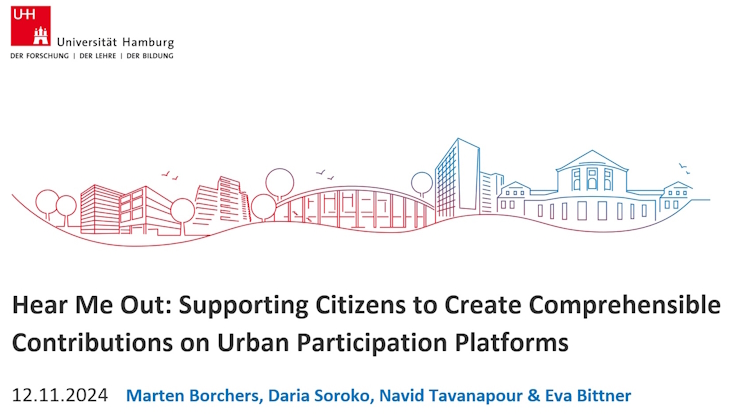Presentation of the results of the inter- and transdisciplinary teaching project Data-driven Solution for the Smart City Hamburg
25 July 2024, by Marten Borchers
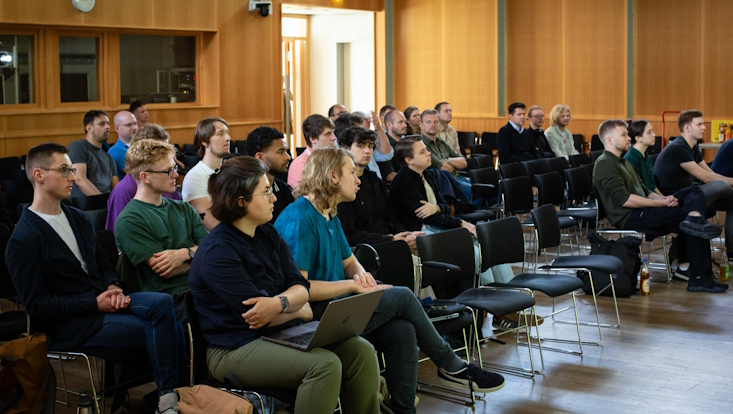
Photo: UHH
On July 24, the final event of the internship seminas "Data-driven Solutions for the Smart City Hamburg", carried out in cooperation with Hamburger Hochbahn AG, took place in the West Wing of the University of Hamburg.
This was the fifth time that the format had been held together with Hamburger Hochbahn AG. The aim of the internship seminar is to enable students to work on various practical use cases using methods of artificial intelligence, machine learning, and data science while promoting innovation.
Sixteen students from seven different degree courses participated in developing, prototyping, and testing solutions in groups of five to six in the teaching project. This semester, they worked closely with the Subway Operations department, represented by Normen Wiegand, Martin Gedlek, and Olaf Petermann, the Mobility Data Analytics and Modeling department, represented by Rebekka Rohdenburg, the Marketing department, represented by Rainer Vierzigmann and the Transport Management department, represented by Mirko Ludewig.
The group of students of Emil Baaske, Fabian Zarncke, Michael Hüppe, Michael Mutin, Thomas Klaasen, and Marvin Müller, in collaboration with the Underground Operations department and the Mobility Data Analytics and Modeling department, investigated how artificial intelligence and machine learning can be used to design and develop a capacity utilization forecast for subway operations to support deployment planning. For this purpose, various data from the subway operations were collected, supplemented, and processed with weather, calendar, and event data retrieved via various APIs. These were then used to train several regression models to determine the number of passengers for selected subway stations and compare them with the subway timetable to find out whether the available capacity meets demand. The prototype also offers promising visualization options and statistical analyses for presenting the results, which are recorded in color on a map and various diagrams.
Regina Sheykhet, Adrian Wagner, Marvin Taube, Lennart-Raabe-Tausche, and Jannik Armbrecht, in cooperation with the Marketing Department, Market Research Unit, investigated how the evaluation of market research data can be automated. For this purpose, an exemplary data set was provided by Hamburger Hochbahn AG, and a web-based prototype was developed. This enables different analyses to be carried out automatically and results to be visualized with the help of a large language model. As this follows a prompt-based approach and the input files correspond to the CSV format, it is possible to adapt and expand data and analyses quickly and easily. The prototype and the evaluation illustrate the potential for artificial intelligence in market research and comparable domains.
The third group of students, Zeinab Emari, Johannes Wegener, Christoph Horlebein, Pascal Abotsitse, and Joris Gutjahr, focused on training machine learning models for predicting bus capacity utilization together with the Department of Transport Economics. The aim was to test whether and with which data and information machine learning models can abstract passenger volumes and predict them several hours into the future. Operational data, event data, and freely available data from OpenStreetMap and weather databases were used for this purpose. The analyses and evaluations of the trained machine learning models show that a prediction of capacity utilization is possible in principle but depends on many factors. These are sometimes difficult to grasp, and data is not always available or does not always meet the qualitative requirements.
Chikaodi Uba, Jan Krause, Eva Bittner, and I are delighted with the successful teaching project and its successful conclusion. It was impressive how quickly, diversely, and experimentally we worked on the use cases. Special thanks go to Jan Krause, who set up this cooperation on behalf of Hamburger Hochbahn AG and continues developing it with us. We would also like to thank all the students and representatives of Hamburger Hochbahn who took part in the lecturing project and supported it.
We look forward to further cooperation and the next semester!
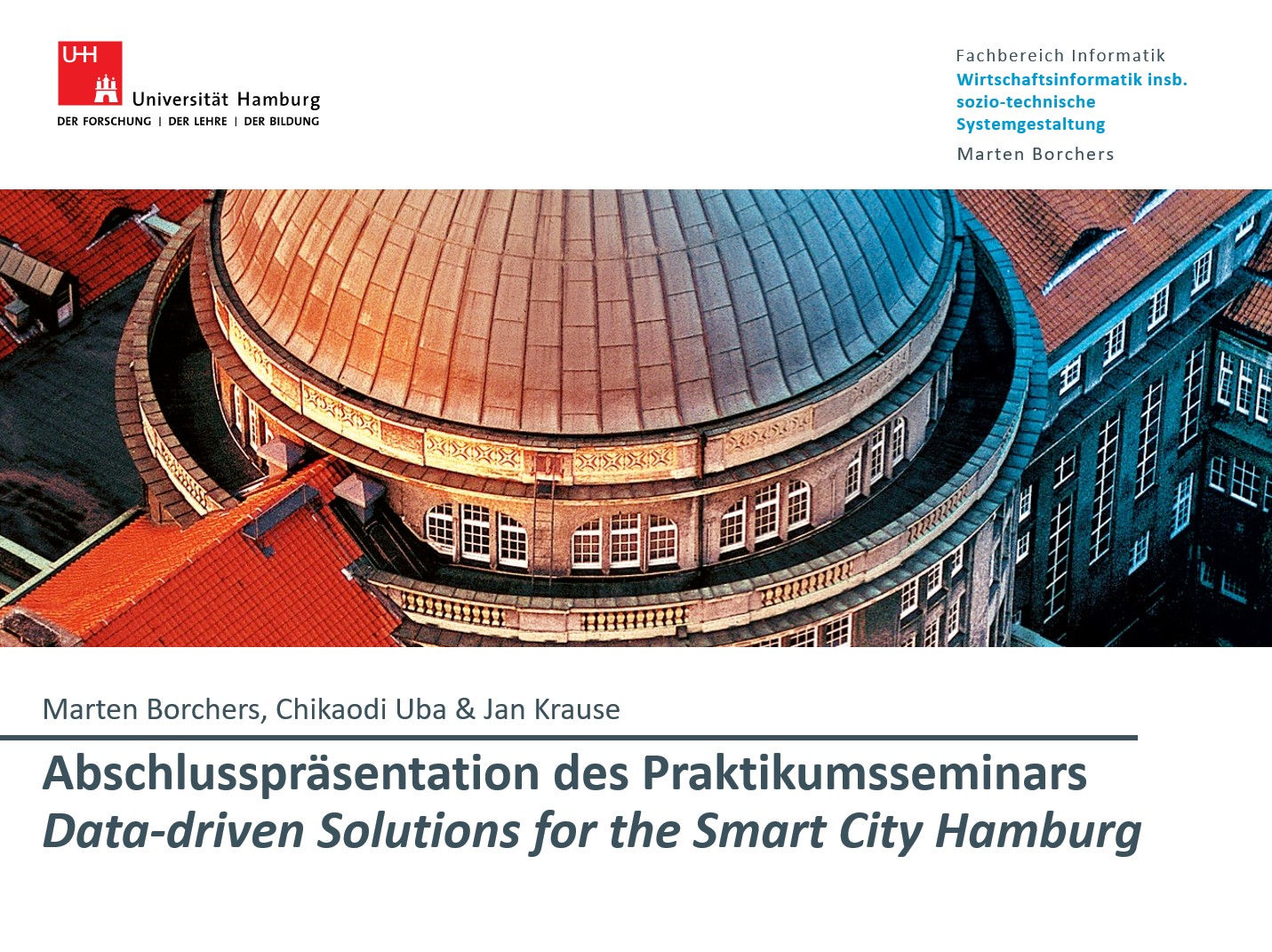 |
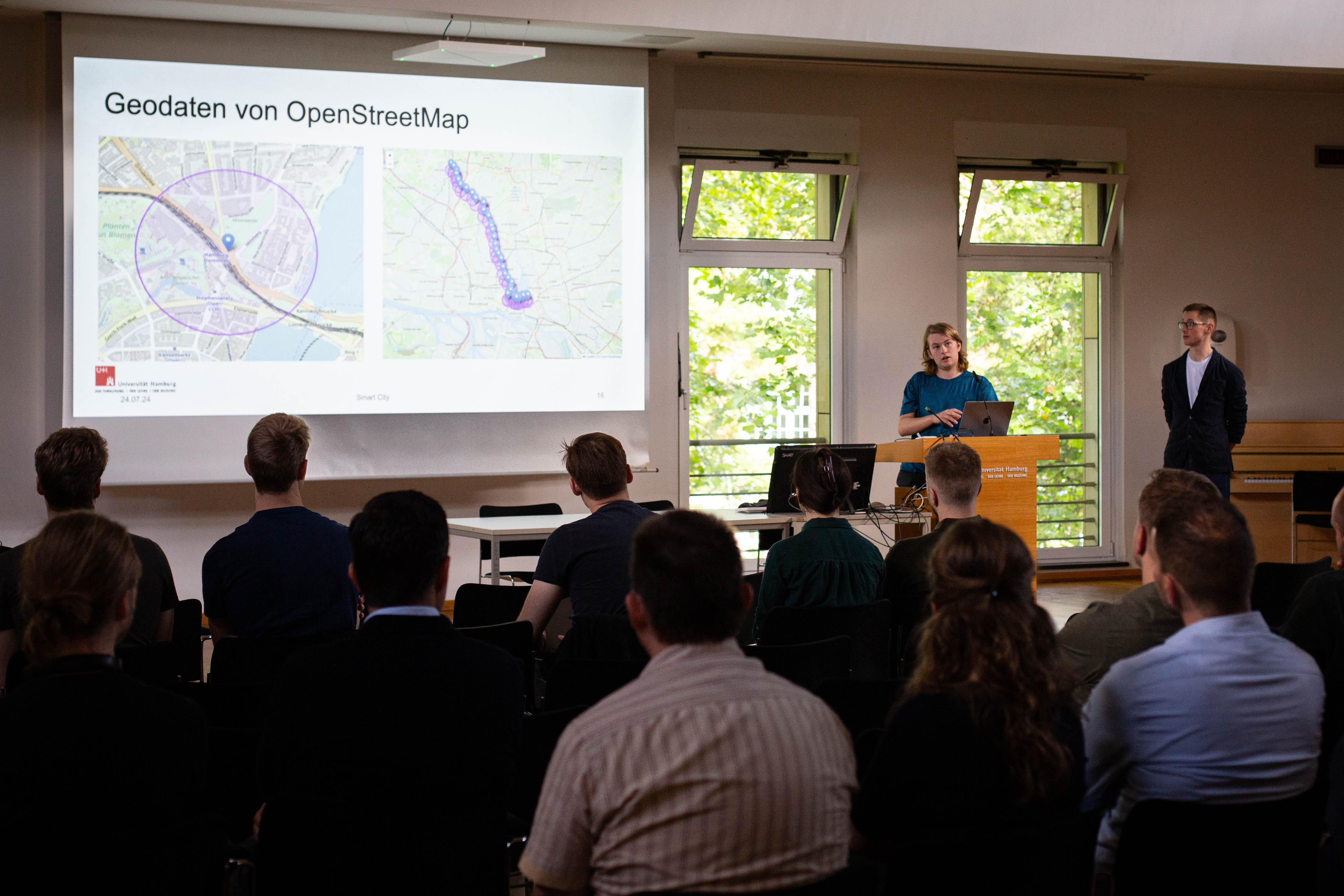 |
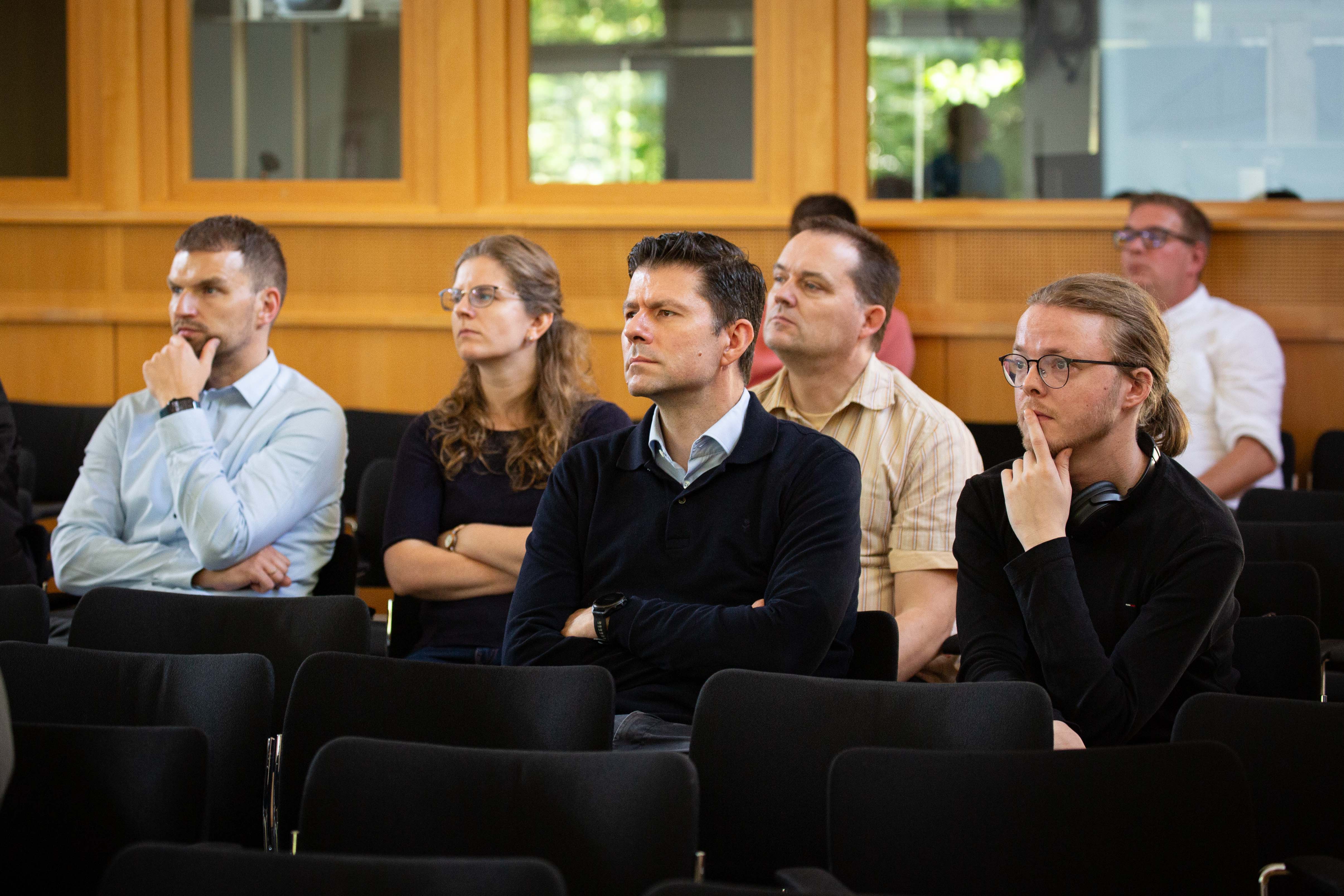 |
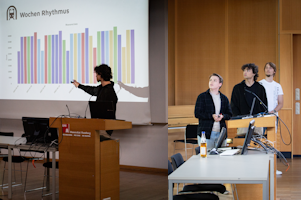 |
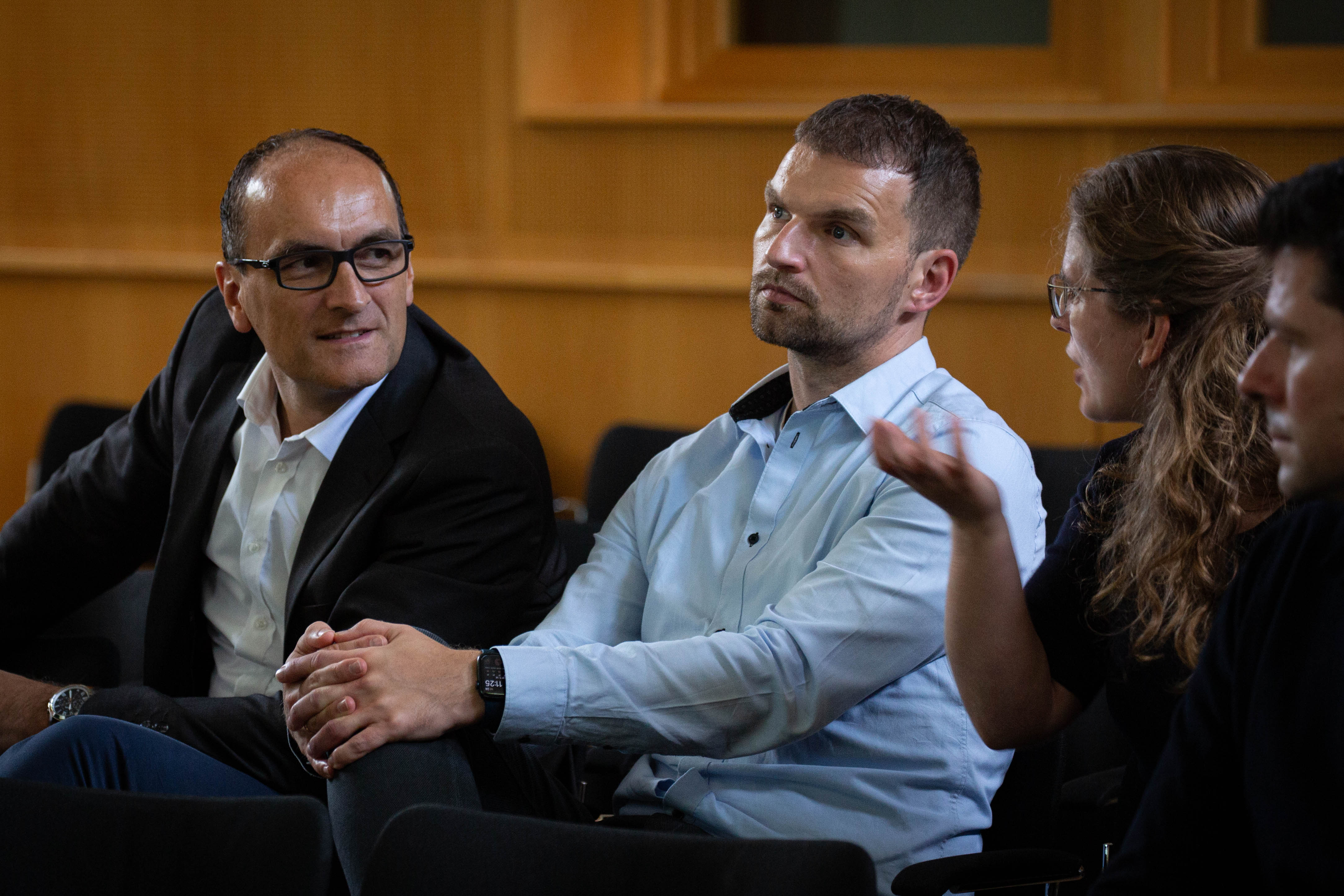 |
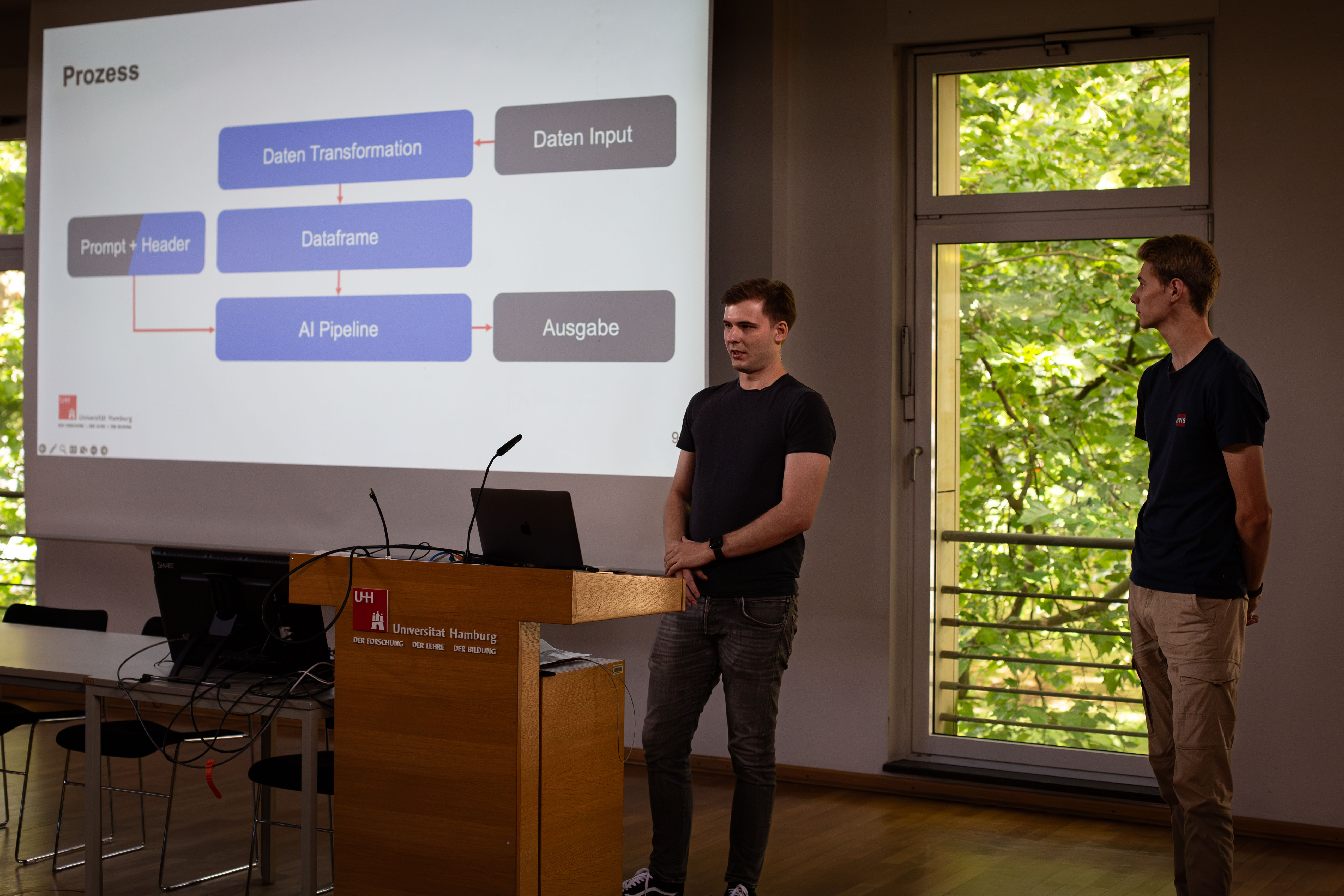 |
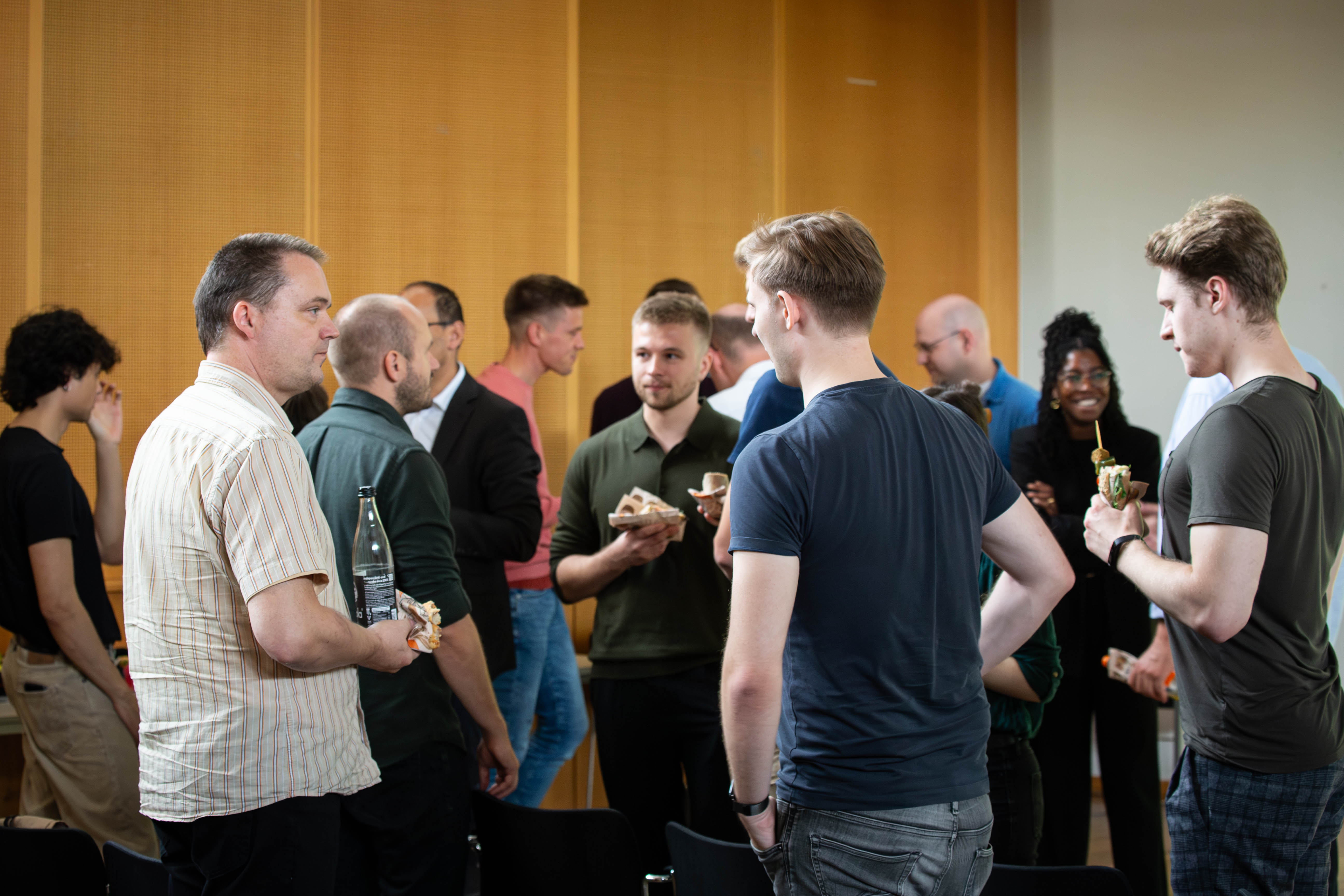 |
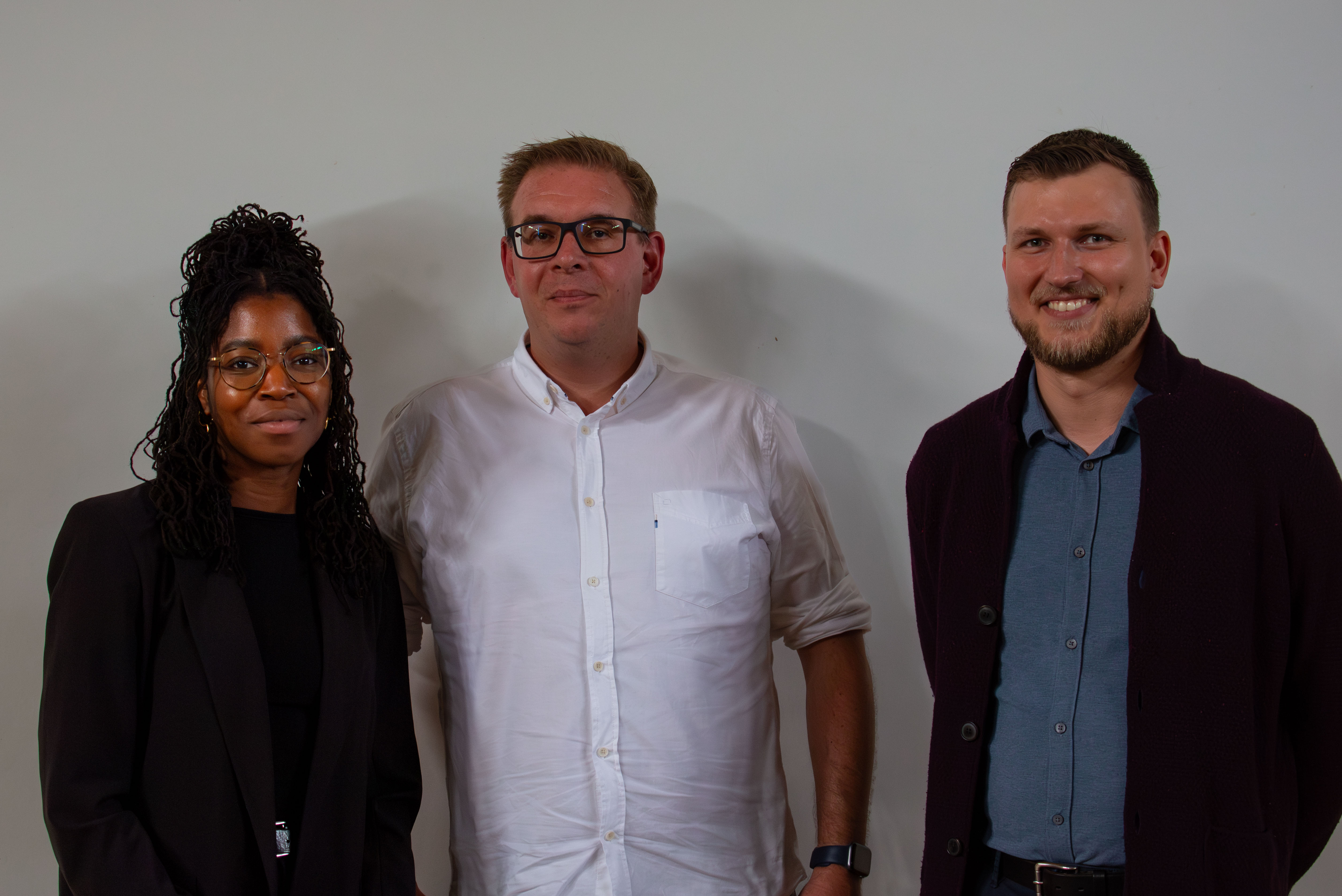 |

